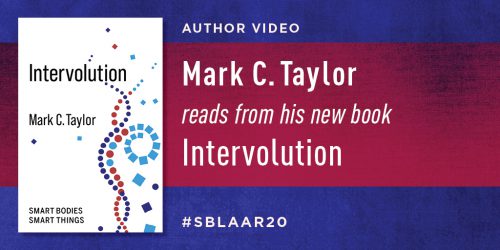Mark C. Taylor on Field Notes from Elsewhere
In a recent essay on Rorotoko and an interview on Objet Petit A, Mark Taylor explains some of the personal, literary, and philosophical influences that shaped his new work Field Notes from Elsewhere: Reflections on Living and Dying.
As Taylor explains in Rorotoko, his book attempts to use the philosophers, often seen as obscure, to illuminate questions that affect us all. Taylor writes:
I had long considered writing a book that would bring together abstract ideas and the concrete experiences and dilemmas of human life in the form of a philosophical memoir. For many people, the writings of Kant, Hegel, Kierkegaard, Nietzsche, Heidegger and Derrida, which lie at the heart of my academic work, are so abstract that they often seem irrelevant. Since my student days, however, I have always found that these writers illuminate questions we all ask and decisions we all face.
In particular, Taylor draws on the ideas of these philosophers to create a wide-ranging narrative that employs diary-like entries, photographs, and family memories to explore, in part, his battle with a severe illness. In Objet Petit A, Taylor expands on the structure of his book:
I conceived the book as a combination of a diary, a family photo album and a book of hours. One of the basic questions I had to answer was how to structure the book. I did not want to write a continuous narrative in a manner reminiscent of Augustine. Life is not, I believe, continuous but is episodic – periods of continuity are punctuated by moments of disruption. As I pondered how to structure the book, I considered taking as my point of departure the Danish word for ‘diary,’ Dagbog – day book. I made up the word Natbog – night book – and thought about writing the Daybook from front to back and the Nightbook from back to front…. I then had the idea of structuring the book like a year-long diary – there are 52 chapters each of which has an AM and a PM entry. Each entry is a meditation on a single topic – indeed, a single word.
For more on the book, please browse the book using Google Preview.




